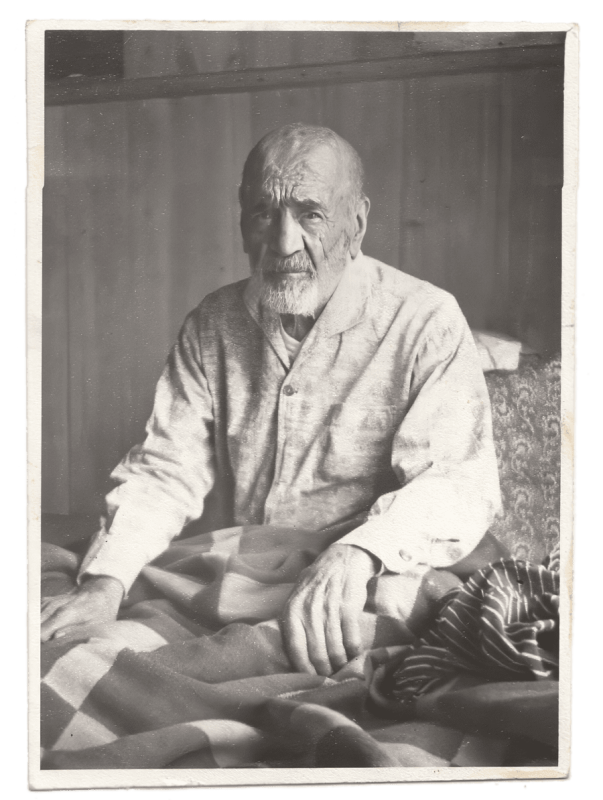Mohammad Falahi, famously known as “Djenāb Damāvandi”
In 1872, a boy was born in the village of Māmakābād (the old name of Ahmadābād village), in the historic city of Damāvand, who was named Mohammad. He was the second son of Sheikh Mohammad Ali Damāvandi, known as Mirzā Moallem, a learned and cultured man who had gained entry to the royal court during the reign of Fath Ali Shāh Qajar. During Mohammad Shāh’s reign, Mohammad’s father rose to such prominence that he was later recognized in the Tārikh-e Montazam-e Nāseri as one of the official educators of the government.
Mirzā Moallem was an advisor to Amir Kabir and played a crucial role in the conquest of Herāt by providing consultation to Morād Mirzā Hessām al-Saltaneh and managing correspondence between the army command and the capital. He served for years as the secretary to Iran’s Minister of Defense before returning to his primary vocation as an educator, training Qajar princes during his retirement. Mohammad Damāvandi received his initial education from his father, Mirzā Moallem, before attending the prestigious Sadr School in Tehrān alongside his elder brother.
At this school, he met his first vocal coach, Seyyed Jafar Lāhiji, and began his vocal training. He practiced in the moats surrounding the capital, enduring great hardships to refine his raw but promising voice. Upon graduation, he moved to Isfahān to study music under Seyyed Rahim Isfahāni at the recommendation of his teacher. As a young man, Mohammad sought financial independence and applied for positions in various government offices, eventually joining the Ghourkhaneh(Arsenal).
This role brought him into contact with Haj Ali Gholi Khān Bakhtiāri. Frequent visits to the residence of Sardār As’ad Bakhtiāri, a hub for intellectual gatherings during the Nāser al-Din Shāh era, profoundly influenced his societal outlook. Around the same time, his friendship with Abd-ol Hossein Khān Sheikh al-Molk, known as Orang (founder of the Iranian Literary Association), deepened. Mohammad’s melodious voice and numerous performances earned him widespread popularity. In 1895, he was honored with the title Djenāb (equivalent to “Sir” in England) by Nāser al-Din Shāh Qajar. From then on, he was known as Sheikh Mohammad Djenāb Damāvandi, frequently traveling across the country to perform at national and religious events. He was also a key witness to the assassination of Nāser al-Din Shāh in May 1896.
Djenāb trained notable singers like Eghbāl ol-Soltān (Eghbāl Azar) and Qamar al-Molouk Vaziri while mentoring young vocalists at private sessions. The turbulent years of World War II brought challenges, including the disappearance of his younger brother, the persecution of close friends and politicians, and his brief imprisonment by British forces occupying Iran.
Djenāb Damāvandi was a generous philanthropist, contributing extensively to his hometown. Among his many acts of charity was donating a 2,500-square-meter garden to establish the first school in Ahmadābād village. Even after retiring in 1953, he remained active, advising local and government organizations in Damāvand well into his nineties.
In 1971, the late Badizādeh and Shāhrokh Nāderi conducted a detailed radio interview with Djenāb Damāvandi for the “Friday Morning with You” program, hosted by Manouchehr Nozari. This recording, one of the most important surviving documents about him, features a vibrant centenarian sharing anecdotes with humor and vitality.
In his final days, the late filmmaker Khosrow Sināi produced a short documentary about him. However, this 20-minute film, like much of Djenāb Damāvandi’s life story, remains unpublished more than half a century after his passing.
Mohammad Falāhi, known as Djenāb Damāvandi, closed his eyes to this world on the 13th of June 1973, hoping to meet the righteous in the realm beyond.



